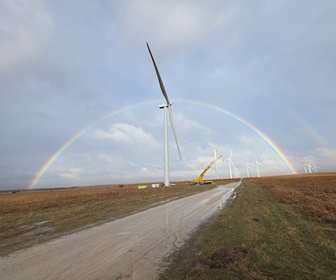US Wind has announced $11 million in funding over ten years to the University of Maryland Center for Environmental Science (UMCES) for three research projects aimed at understanding the potential effects of offshore wind development on marine mammals, fish, and birds.
The research will take place in US Wind’s 80,000-acre federal Lease area off the coast of Ocean City, Maryland.
The three UMCES research projects are:
The three UMCES research projects are:
- Commercial and Recreational Fisheries Monitoring: The goal of this eight-year program is to evaluate the extent that black sea bass change their aggregation behaviours before, during, and after construction. Black sea bass are structure-oriented with large aggregations occurring on artificial reefs and wrecks. Turbine foundations will add three-dimensional structure within US Wind’s Lease where very little currently exists. This research project will assess the benefits and potential fish aggregation effects. It will also test black sea bass fishing with ropeless gear, an important technology to reduce whale entanglements.
- Near Real-Time Whale Detection: This initiative will continue the deployment of a near real-time whale detection system to provide timely alerts on the presence of baleen whales (North Atlantic right whales, and humpback, fin, and sei whales) for a 12-month period from 2022 to 2023. The project is a unique partnership between UMCES and Woods Hole Oceanographic Institution that utilizes specialized quiet mooring technology, whale vocalization detection algorithms, and telecommunications to transmit frequent alerts on the presence of baleen whales. The initiative enables continued and real-time data collection through the buoy system that was initially funded by the Maryland Energy Administration and deployed by the Maryland Department of Natural Resources.
- Passive Acoustic Monitoring Array: This long-term research project will support passive acoustic monitoring to detect large whales — such as North Atlantic right whales — and dolphins to understand their presence and migration patterns in and around the Lease area and the potential effects of construction. Working with Cornell University’s Center for Conservation Bioacoustics, two types of listening devices will be deployed to determine the occurrence and position of large whales and dolphins, and to detect the tonal echolocation clicks of small cetaceans including porpoises. Additionally, this project will deploy equipment to listen for passing fish, sharks, rays, and turtles that have been implanted with transponders for broader scientific research.









